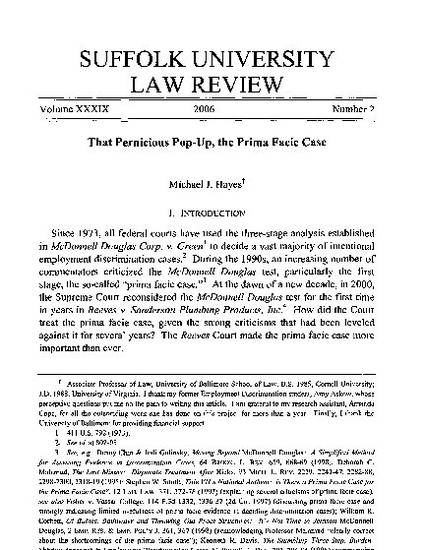
This article first explains the role the prima facie case has played in discrimination cases, from its creation in McDonnell Douglas through the Supreme Court's decisions in Aikens and Reeves, up to the application of Reeves by lower courts in the past several years. Next, this article focuses on Reeve's identification of "strength of the prima facie case" as a factor to be considered on summary judgment, and discusses why it would be unwise and unworkable to interpret the words "prima facie case" in that factor as having the same meaning as the "prima facie case" proved in the first stage of the McDonnell Douglas framework. Finally, this article explains how and why courts should prevent the prima facie case from "popping up" again in the third stage of the McDonnell Douglas analysis, where it would distort and disrupt the court from conducting a fair and reasoned evaluation of whether a plaintiff's discrimination claim should go to a jury.
This article contends that it is a mistake to allow the prima facie case to play a significant role in the third stage of the McDonnell Douglas analysis. Additionally, this article explains how the Aikens decision offered crucial insight into the proper role of the prima facie case in adjudging discrimination claims, and correctly concluded that the prime facie case should not be considered after the employer has presented a reason for its challenged action. Finally, this article argues that the Reeves decision, by making "strength of the prima facie case" a factor to be eonsidered at the final stage of the McDonnell Douglas analysis, threatens to give the traditional prima facie case far greater weight than is sensible or just.
